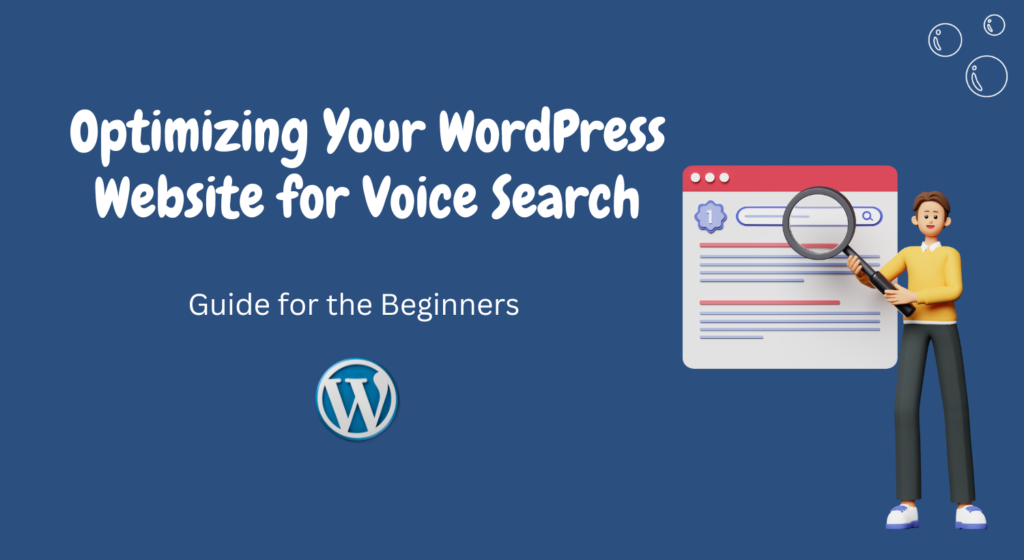In this digital age, search engine optimization (SEO) has become an essential part of ensuring your website’s visibility.
With the rise of voice assistants like Siri, Google Assistant, and Alexa, optimizing your WordPress website for voice search has become crucial to stay ahead in the game.
Voice search has changed the way users interact with the internet, and businesses need to adapt their SEO strategies accordingly to capture this emerging trend.
Understanding the Impact of Voice Search
The Evolution of Search Behavior
In recent years, voice search has gained immense popularity due to its convenience.
People are now using their voice-activated devices to ask questions and perform searches, rather than typing them out.
This shift in behavior has led to a change in the way search engines process and deliver results.
The Rise of Long-Tail Keywords
With voice search, users tend to use more natural, conversational language.
This has given rise to the importance of long-tail keywords – longer and more specific keyword phrases that match the way people speak.
Incorporating these keywords into your content can significantly improve your chances of appearing in voice search results.
Optimizing Your WordPress Website for Voice Search
Choosing the Right Plugins
When it comes to WordPress, plugins play a crucial role in optimizing your website.
Consider installing plugins that help with SEO, such as Yoast SEO or Rank Math.
These plugins can assist in optimizing your content for both traditional and voice search queries.
Structured Data Markup
Implementing structured data markup, such as schema.org, can provide search engines with more context about your content.
This helps search engines understand your content better, increasing the likelihood of your website being featured in voice search results.
Mobile-Friendly Design
Voice searches are often performed on mobile devices.
Ensuring that your WordPress website is mobile-responsive and loads quickly is essential.
A mobile-friendly design not only improves the user experience but also signals to search engines that your site is optimized for various devices.
Featured Snippets
Featured snippets are concise answers displayed at the top of search results.
These snippets are highly valued in voice search results, as voice assistants often read them aloud.
Structure your content to provide clear and concise answers to common questions related to your industry.
Natural Language Content
Creating content in a natural, conversational tone can improve your website’s compatibility with voice search.
Anticipate the questions users might ask and provide comprehensive answers in your content.
This not only enhances your chances of appearing in voice search but also establishes your authority in your niche.
Page Speed Optimization
Page speed is a crucial factor for both traditional and voice search optimization.
Slow-loading pages can increase bounce rates and negatively impact user experience.
Compress images, leverage browser caching, and minimize unnecessary scripts to improve your website’s loading times.
Local SEO Optimization
Voice searches are often used to find local businesses and services.
Make sure your WordPress website is optimized for local SEO by claiming your Google My Business listing, ensuring consistent NAP (Name, Address, Phone Number) information, and encouraging customer reviews.
The Future of Voice Search and SEO
Voice Commerce
As voice search continues to evolve, the concept of voice commerce is gaining traction.
People are now using voice commands to make purchases.
Businesses should consider implementing voice commerce strategies to tap into this emerging market.
Conversational AI
Advancements in artificial intelligence have led to the development of more sophisticated conversational AI.
Integrating AI chatbots on your WordPress website can enhance user engagement and provide instant responses to user queries.
Contextual Understanding
Search engines are becoming better at understanding the context behind user queries.
Creating comprehensive content that addresses a wide range of related topics can help search engines better understand your website’s relevance to voice search queries.
Conclusion
In conclusion, optimizing your WordPress website for voice search is no longer optional – it’s a necessity.
By understanding the impact of voice search, choosing the right plugins, focusing on mobile-friendly design, and creating natural language content, you can position your website to thrive in the era of voice assistants.
Embrace the future by staying up-to-date with the latest trends in voice search and adapting your SEO strategies accordingly.
The Role Of WordPress In Building An Online Store
FAQs About Optimizing WordPress Websites for Voice Search
Q1: Is voice search really that important for my WordPress website?
Absolutely. With the rise of voice-activated devices, optimizing for voice search ensures your website remains visible and accessible to a growing number of users.
Q2: How do I find the right long-tail keywords for voice search optimization?
Use tools like Google’s Keyword Planner or other SEO platforms to identify conversational long-tail keywords that align with your content.
Q3: Can I optimize my existing content for voice search?
Yes, you can. Review and update your existing content to include natural language, concise answers to common questions, and relevant schema markup.
Q4: Are there any specific guidelines for optimizing for local voice search?
Yes, focus on local SEO strategies such as optimizing your Google My Business listing, getting positive reviews, and ensuring accurate NAP information.
Q5: What’s the role of AI in voice search optimization?
AI-powered chatbots and conversational AI can enhance user experience and provide instant responses to voice-generated queries, improving engagement on your website.


